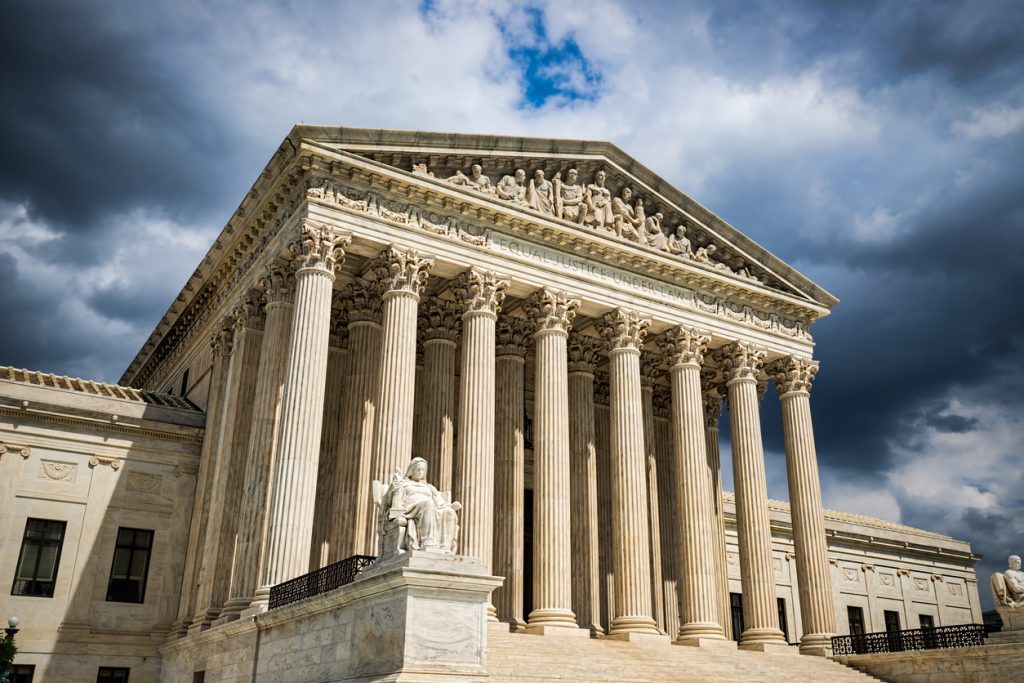Shortly before Thanksgiving, 17 state attorneys general filed an amicus brief in a United States Supreme Court case called Concepcion v. United States. In the brief, the prosecutors urged SCOTUS to avoid restricting the resentencing relief that’s available under the First Step Act.
In their brief, 17 attorneys general ask SCOTUS to let courts consider changes in the law and circumstances for purposes of First Step Act Relief.
The issue before SCOTUS in Concepcion v. United States centers on what information courts can consider when deciding whether to reduce a sentence for a crack-cocaine offense under the First Step Act.
The defendant, Carlos Concepcion, argues that courts should be able to consider things that have happened since the original sentence. The two specific examples at issue in the case include changes to the law and changes in the defendant’s circumstances, including their behavior in prison and evidence of rehabilitation.
The attorneys general, the highest-level prosecutors in their states, agree with Mr. Concepcion’s position. They also want courts to be able to consider these post-conviction changes.

The attorneys general argue that broad First Step Act relief is needed because of the unfair sentences, to save taxpayer money and to right historic wrongs.
According to Illinois Attorney General Kwame Raoul’s press release on the amicus brief filed by the attorneys general, there are three reasons why Mr. Concepcion’s position should win.
First, the attorneys general argue that it is undisputed that federal law has had unfair and unnecessary penalties for crack-cocaine offenses for decades. This is true.
For years, federal law treating five grams of crack cocaine the same as 500 grams of powder cocaine. Lawmakers reduced that 100:1 ratio to 18:1 in 2010. But even the 18:1 ratio remains unfair.
Second, studies show that shorter sentences improve public safety and save taxpayer money. In fact, shorter sentences for drug-related crimes actually reduce recidivism rates.
Third, lawmakers designed the First Step Act to fix historic wrongs. The 100:1 ratio, and even the 18:1 ratio, harmed Black communities more than anyone else. The First Step Act wanted to fix this. But if SCOTUS limits resentencing relief under the First Step Act, this goal can’t be achieved.
President Trump signed the First Step Act with high expectations. But, even with wide support, the law fell short. And SCOTUS could make it even worse.
When former President Donald Trump signed the First Step Act into law, it came with high expectations. Some lawmakers described it as “once-in-a-generation” criminal justice reform. Frankly, that’s what it should have been.
At the outset, the First Step Act had support from both political parties. U.S. Senators Dick Durbin (D-IL) and Chuck Grassley (R-IA) sponsored it. Additionally, lawmakers from both parties voted for it.

Even now, attorneys general from all over the country support Mr. Concepcion’s position before SCOTUS. Those states and jurisdictions include the following:
- Colorado,
- District of Columbia,
- Guam,
- Iowa,
- Maryland,
- Massachusetts,
- Michigan,
- Minnesota,
- Nevada,
- New Jersey,
- New Mexico,
- North Carolina,
- Oregon,
- Vermont,
- Virginia and
- Washington.
But the First Step Act hasn’t lived up to the hype, especially when it comes to time credits.
Yet, with this nationwide support, the hope is that SCOTUS will endorse a broad view of First Step Act relief. But, ultimately, SCOTUS must follow the First Step Act’s language. So, for now, the outcome isn’t clear.
Oral argument in Concepcion v. United States is scheduled for Jan. 19, 2022.






